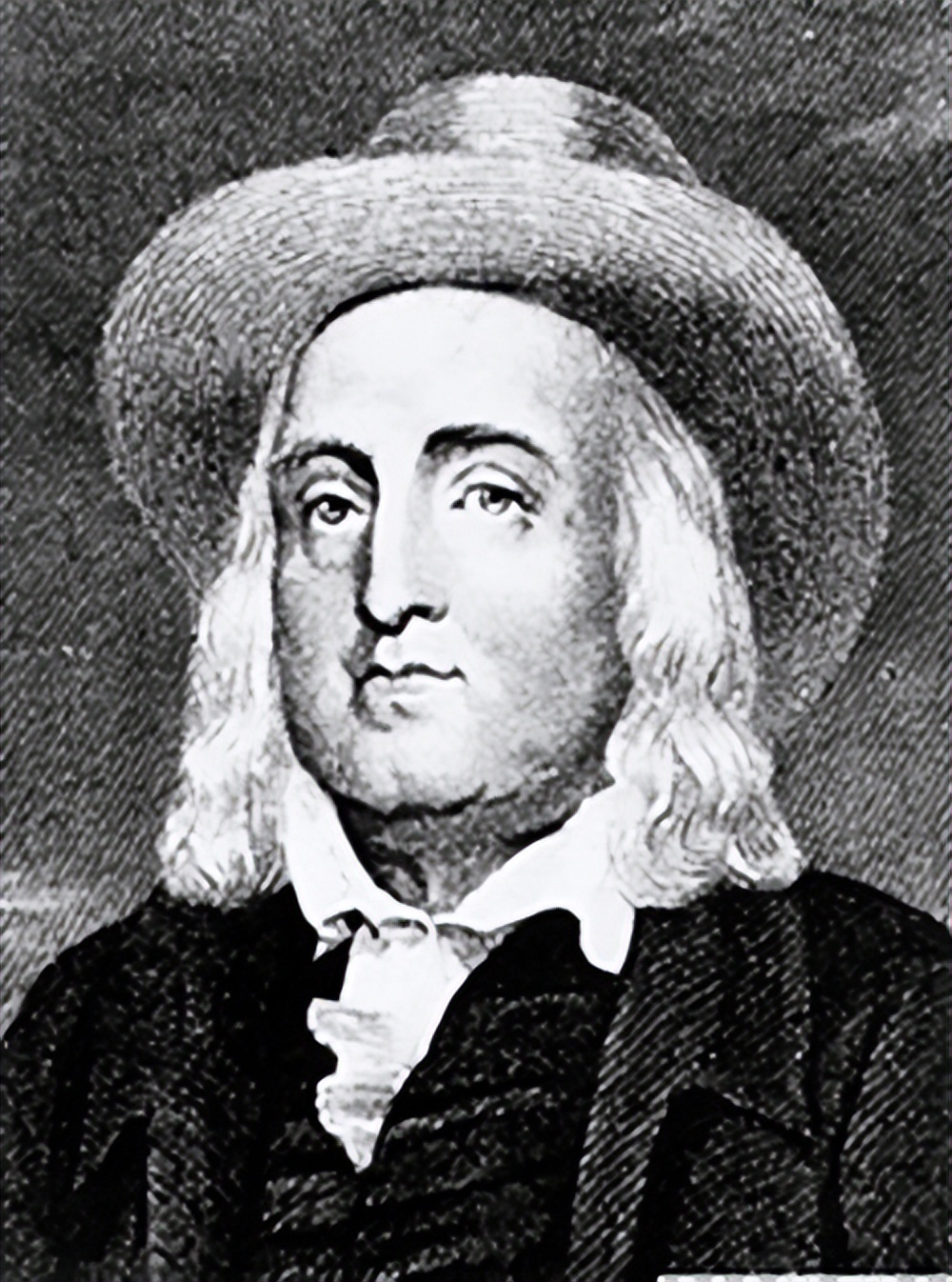Utilitarianism: Is it moral to bring benefits to most people?
Author:Liu Xiaoshang Time:2022.07.04
Is it moral? This is incredible to many people, but this is indeed the hidden value orientation of many people today. This value orientation is called utilitarianism. When it comes to the word "utilitarian", many people may think that it is against morality. In fact, the more neutral translation should be "efficacy" or "utility", which can increase the overall welfare of society, which is good.

In fact, such value principles are widely adopted in today's political, economic and social systems. For example, the reason why a system is legitimate is precisely because it benefits most people, although it may harm the interests of a small number of people. The interests of a few people obey the interests of most people. What are the fundamental problems? Let's first look at what is utilitarianism.
The utilitarian ethics and morals are proposed by British philosopher Bian Qin, and Bian Qin's utilitarian thought is influenced by British philosophers and David Hume. Hume proposed that the origin of human morality comes from "utility". Hume said that whether one thing is moral and there is no objective standard, it is just an emotional preference for human beings.
Morality is just a choice of human beings, not even an inevitable, rational and objective foundation, but just a "useful" choice, and Hume is called "utility". Hume said: In general, no one can deny that only the most prominent kindness can give humans a higher value; and the value of benevolence is at least part of it comes from it to enhance the well -being and promote human beings. The tendency of social happiness.

Later, Bian Qin inherited and promoted Hume's "utility theory", and proposed the famous "greatest happiness principle". Bian Qin believes that the highest principle of morality is to maximize happiness and make happiness exceeded pain. The right behavior is any behavior that maximizes utilitarianism. What he said "utilitarian" means anything that can produce happiness or happiness and prevent pain or suffering.
Bian Qin said that when we make moral decisions, the correct behavior will maximize this kind of utilitarian thing. The utilitarian must first understand from a happy perspective, and then the difference between happiness and pain. This moral judgment standard looks simple and easy to do, that is, considering the happiness and pain caused by the behavior of the affected people, and then perform the option with the largest value of the total amount of pain and minus the total amount of pain. It can bring the maximum number of happiness, and it can also be referred to as: the greatest happiness principle.

Why can "happiness" be used as the ultimate measure? Because Bian Qin believes that all animals in the world, including humans, are pursuing happiness and avoiding pain, pursuing happiness and avoiding pain is the only goal worth pursuing. Therefore, it is good to increase happiness and happiness and reduce pain, which is moral.
Utilitarianism looks very simple and clear, because it is in line with human intuition, and it is human nature to avoid harm. In addition, Bian Qin also proposed six dimensions to measure happiness and happiness: strong degree, duration, certainty, close or distant, derivative and purity. Later, British philosopher Mirl proposed different happiness on the basis of the "greatest happiness principle". He introduced the quality and level of happiness into the utilitarian moral outlook. Mill believes that there are some types of happiness more valuable than other types of happiness. For example, being a person who is not satisfied is better than being a satisfactory pig. It is better to be a satisfying fool than a satisfying fool.

Although utilitarianism is a kind of moral outlook that conforms to intuition and is widely accepted, it has also been questioned. For example, it seems too narrow and one -sided to judge the morality of a behavior with just whether to judge the morality of a behavior. "Happiness", such as the happiness of terrorists, or the happiness of seeing a car accident in a car accident, such happiness is certainly not worthy of admiration. Similarly, Mier's views on the quality and level of happiness are also facing the same problem. Whose happiness is higher? Does Socrates have a higher level of happiness and happiness than ordinary people? Obviously not necessarily.
However, in any case, utilitarianism is based on the principle of "greatest happiness". This moral outlook is very attractive. The highest principle of morality is to maximize happiness and make happiness exceeded pain in general. This ideological system created by Bian Qin has a profound impact on the political, economic and commercial world today. But utilitarian morality is facing two most serious doubts.

First of all, the most obvious defect of utilitarianism is that it does not respect the right of individuals. For example, during the ancient Roman period, there was a popular entertainment project that thrown Christians to the lions in the arena and let the lion bite them. When Christians were suffering from great pain, the audience on the sidelines felt ecstasy. If there are enough Romans to get happiness from this brutal entertainment, it means that this behavior is moral, obviously not.
Similarly, in the famous "elevator problem", can we sacrifice a person's life as a price in order to save the lives of 5 people? In order to obtain more information, can we confess to the torture of terrorists to save more people's lives? In these behaviors, it may be unacceptable to sacrifice individual rights to increase overall happiness. In short, in the principle of utilitarianism, individual power is easily ignored or even trampled.

Secondly, utilitarianism is trying to establish a moral science based on measuring, merging and computing happiness, to measure various preferences without judging, and try to overcome this preference. The value orientation of several people, rich is happiness, and identity is moral authority. Quantitative happiness, transforming good into a single value currency, and even a cold number of cold ice. The problem of this thinking is that happiness is equivalent to morality. The philosopher Kant believes that the moral legitimate and sensitive happiness is completely different. Kant believes that morality cannot only be based on the consideration of empiricalism, such as the various hobbies, expectations, desires and preferences of people at a certain time. These factors that measure happiness are varied and accidental. It is difficult to be the foundation of general moral principles.
Kant said: The principle of happiness of utilitarianism has no contribution to morality, because it makes a person happy, different from making him better; making a person cautious and wise when pursuing his own interests, different from making him even more. Morality. The foundation of morality should be to respect the free will of other rational creatures. Morality is not to make people happy, but to make people worthy of happiness. Philosopher Nietzsche said in "The Dusk of Idols" and said scornfully: People do not fight for happiness, only British talents do so.

Well, today we introduced the moral outlook on utilitarianism, and also introduced two major questions facing utilitarian moral views. In the next issue, let's take a look. As a critical criterion for utilitarianism, Kant's obligation and moral outlook on morality, what exactly said. Today's content is this. If you like my article, please like it and follow me. For the next article, see.
- END -
The performance compensation of the Qinhuai scenery will not be able to receive the Qinhuai scenery.
A transition and acquisition of a transformation and acquisition of the company's lingering psychological shadow by Nanfang (SH600250, stock price of 5.18 yuan, and a market value of 1.609 billion y...
Zhang Yugui and Zhang Qian: The Federal Reserve "Hardly Integration", using the wrong medicine
As market expectations, the Federal Reserve under the leadership of Powell announced the two -day monetary policy meeting, announcing a significant increase of 75 basis points on the target range of t